Photographs: Hans Speekenbrink Chaya Babu in New York
Vijay Iyer, the critically acclaimed jazz musician, is the only Indian American among this year's 24 MacArthur Geniuses.
Rediff.com's Chaya Babu speaks to the musical genius.
"They just call you up and drop it on you," Vijay Iyer says, laughing about the moment he received his big news a few weeks ago.
He had no idea it was coming. You don't apply for a MacArthur Fellows Programme 'Genius Grant'; you get nominated confidentially.
Iyer is also in the dark about who was responsible for his nomination. It's all pretty fresh and still sinking in, he says. He's not even sure exactly what he'll do with it.
Please ...
'I don't think I'm going to totally change my life'
Image: Stephan Crump, Marcus Gilmore and Vijay IyerPhotographs: Jimmy Katz
The $625,000, paid out in equal quarterly installments over five years, is a 'no strings attached' award.
Iyer can use it however he likes to pursue his creative work.
As the MacArthur Foundation puts it, it's 'an investment in a person's originality, insight, and potential' and is in support of people not projects.
"Even if I just continue in the vein that I've been in, which is creating a lot of music, performing a lot of music, writing about and talking about music with other people, and doing academic scholarly work on the act of listening, I will be very happy," Iyer says.
"I don't think I'm going to totally change my life; I think I'm just going to be a little more free to do those things."
The fellowship comes within a slew of positives for Iyer. He is beginning a tenured position at Harvard University in January as the first Franklin D and Florence Rosenblatt Professor of the Arts.
His latest album released September 10, the last in a trilogy that deals with the theme of experiences of people of color in post-9/11 America.
Please ...
'I've been very fortunate to be fulfilled doing what I do'
Image: The Vijay Iyer trio performs at ECHO Jazz 2010Photographs: Monique Wüstenhagen/BVMI
In May, he received the prestigious Echo Award (the 'German Grammy') as International Pianist of the Year, and he was most recently named Pianist of the Year in the 2013 Jazz Awards by the Jazz Journalists Association, a title he holds for the second consecutive year.
The MacArthur Genius news also coincides with -- and is symbolic of -- his crossing over in the past few years from the fringes of the jazz scene to the mainstream.
"This is a pretty intense pile-up of great things, but it's been a fairly steady arc of growth," he says.
"It's had its ups and downs like anything in life, but I don't have any complaints. I've been very fortunate to be fulfilled doing what I do."
Iyer is one of the 24 MacArthur fellows selected this year.
He is a composer, performer, collaborator, teacher, and academic.
His jazz career began almost 20 years ago, and with this month's release of Holding It Down: The Veterans; Dreams Project, he has 17 albums under his belt. He also has an inter-disciplinary PhD in the cognitive science of music from the University of California, Berkeley.
The biggest reward in what he does, he said, is being able to have amazing and profound interactions with people from all walks of life and different communities from all over the world.
His most recent record is a strong example of that.
Please ...
'Brown people after 9/11 had a certain common predicament of being the target of racial profiling'
Image: Vijay IyerPhotographs: Jimmy Katz
Holding It Down adds to Iyer's large body of collaborative work, and more specifically, it is the third album on which he has teamed up with hip hop poet Mike Ladd.
The pair made In What Language in 2004 and Still Life With Commentator in 2007 together.
More than that, the projects with Ladd could not have been done without the voices of many different people; in the case of Holding It Down, these individuals are veterans of colour who fought in the Iraq and Afghanistan wars and shared their dreams.
It returns to the narrative format that drove In What Language, which was based on interviews with people of colour in airports and was the start of this decade-long venture.
"It was a really broad category, like what does that even mean? What do 'people of colour' have in common experientially or culture? It includes everything and its opposite," Iyer says.
"But we wanted to imagine the possibility of community among these disparate populations. And what was happening at that time when we made In What Language was an atmosphere of surveillance and fear and paranoia."
"Brown people after 9/11 had a certain common predicament of being the target of racial profiling and heightened surveillance, things like that. That's sort of what came out of that effort, just observing the commonality of that. There's unity in the telling of these stories."
Iyer and Ladd didn't know when they began working on this even before the September 11 attacks that world events would unfold as they have and so drastically impact our social and political climate.
Please ...
'You certainly don't get a sense that we're at war by listening to the radio'
Image: Fieldwork featuring Steve Lehman, Vijay Iyer and Tyshawn SoreyIn this time, the theme of war has been so compelling -- the second album looks at the 24/7 news cycle and the absurdity of what kinds of media we consume in a time of tragedy and atrocity -- that it led them to continue with it.
Iyer's identity as a brown South Asian American largely shaped his interest in how certain communities were being impacted by the war on terror.
To him it seemed that we as a society were not talking about the violence and its ramifications at all. There was a void to fill.
"You certainly don't get a sense that we're at war by listening to the radio, or that there have been these decade-long wars waged by the United States," Iyer says.
"If you look at the landscape or culture of the past decade, it's sort of hard to find any traces of it.
"There were movies here and there, like Hurt Locker, Stop-Loss, and a couple of things like that. But this wasn't in the front of everybody's mind; it hasn't received the kind of attention you would think it ought to. Mainstream American culture hasn't really grappled with the fact that this has been happening on our dime."
The album uses the dreams of veterans as the basis for the poetry and lyrical narratives set to jazz instrumentals.
Please ...
From 'Indian jazz musician' to a jazz musician who happens to be Indian
Image: Vijay IyerPhotographs: Jimmy Katz
Lynn Hill, who served in the United States Air Force and was tasked with piloting drones over Afghanistan, and Maurice Decaul, a writer who served with the Marines in Iraq, appear on a number of tracks with first-person contributions.
Iyer says Hill's Capacity is notable in its fearlessness and vulnerability, and in those ways, it stands for the project as a whole. Ladd interviewed her during a recording, and her words in that moment are what appear on the track.
It's a real-time documentation of her story.
'When I was in bed,' Hill says, with the beat behind her, 'the last thing I would think about was the families of these other people and how they look like me and that I could have been on the other side of those crosshairs.'
It is candid. Intense.
For Iyer, learning about these experiences has been deeply gratifying, personally and professionally. It's these human elements of what he does that drive him. And he plans to keep going down this path.
And, of course, it does not go unnoticed that he is a trailblazer of sorts as an Indian American renowned for his contributions to quintessentially American music.
The MacArthur Fellowship is a nod to that.
If ever Iyer was looking for a way of knowing that he transcended the label of 'Indian jazz musician' to a jazz musician who happens to be Indian, he's got it.

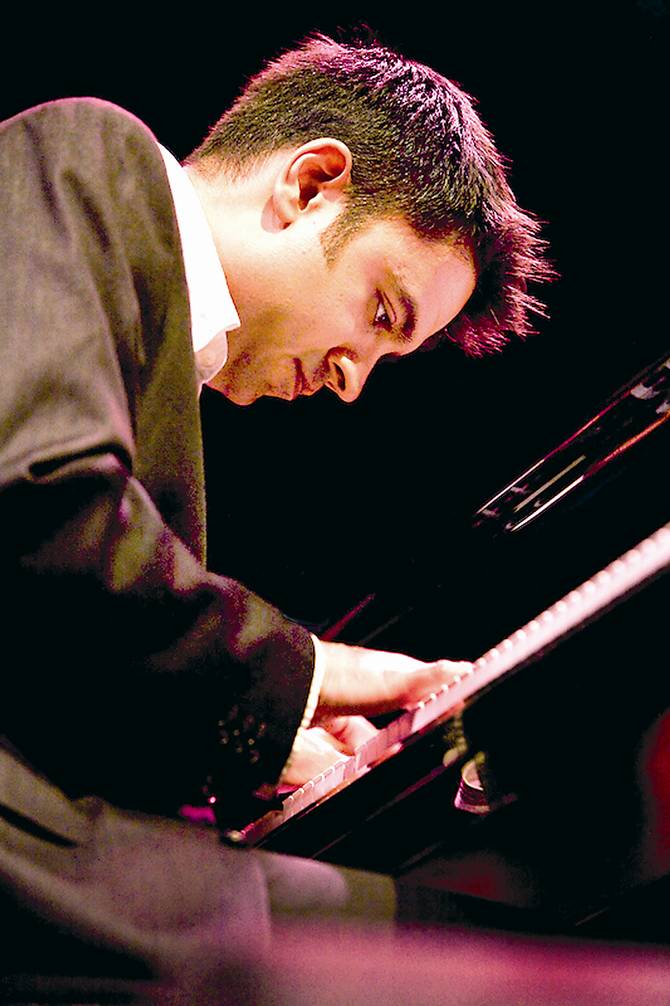
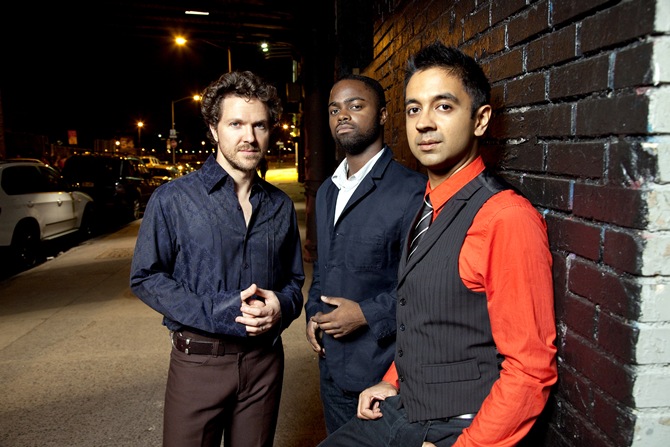
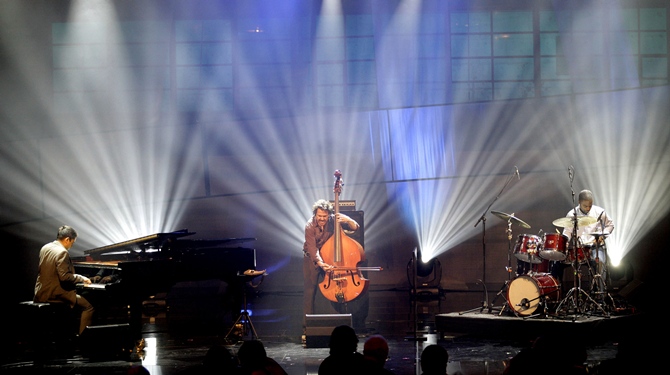
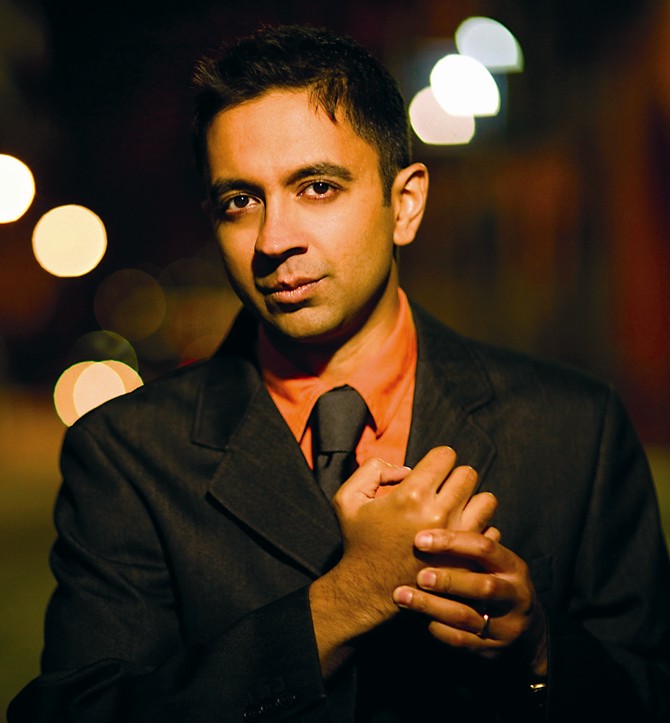
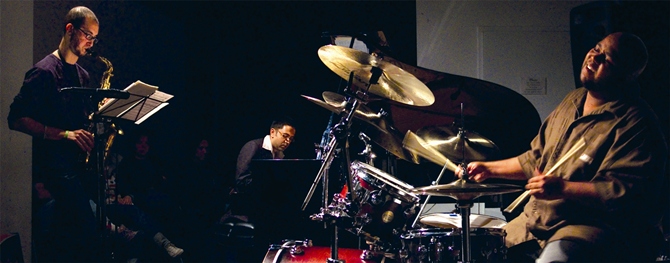
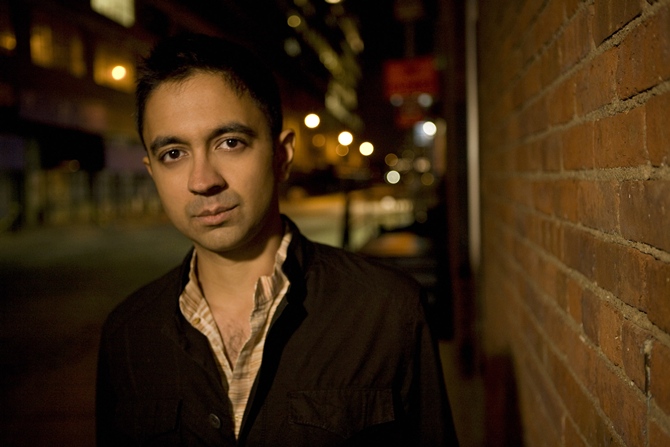
Comment
article